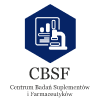Storage tests of dietary supplements are one of the basic elements of the product design stage to ensure appropriate quality throughout the shelf life. The analyzes carried out assess the product and possible changes during storage, mainly based on microbiological purity, physicochemical properties and organoleptic characteristics. The scope of the assessment is determined individually for each product. The main factors that may affect durability include environmental temperature and humidity, the influence of light and radiation.
Stress testing
When it comes to medicinal substances, there are strict requirements for durability tests. However, there are no precise guidelines for dietary supplements. As a result, the market follows the recommendations developed for the pharmaceutical industry. These recommendations are as follows:
- the amount of the substance should be at least 90% of the declared amount,
- the concentration of any decomposition products should not exceed a safe level,
- the bioavailability of the medicinal substance cannot change,
- there should be no significant changes in appearance and taste.

Types of stability and storage tests
Long-term tests
These tests are conducted under recommended storage conditions within a specified period for testing the shelf life, as proposed or approved.
Accelerated tests
These tests are carried out under severe and unfavorable environmental conditions.
Stress tests
These tests are conducted under even more drastic conditions than accelerated tests to assess the product’s durability.

Storage tests involve direct, accelerated, and stress tests, with the latter being less frequently mentioned. Direct testing involves storing the product under recommended conditions to confirm its shelf life, but this process can take 2-3 years. To shorten the time, the accelerated method is used, which models the actual storage period by tightening certain storage conditions, usually through increased temperature and humidity. This allows you to assess the scope and direction of changes occurring in the product, verify its safety and quality, and assess its stability during short-term deviations from recommended storage conditions, such as during transport.

Stress tests are part of the product development stage and are conducted in more challenging conditions than accelerated research. They aim to identify the profile of potential pollutants and determine the degradation mechanism. Their great advantage is the short duration of analyses. Often, the results obtained are a starting point for further product modifications. Stress tests also help establish appropriate storage recommendations by determining the environmental parameters under which further storage tests should be carried out.
The Food Supplement and Pharmaceutical Research Center conducts stress tests for active substances and ready-made dietary supplements, offering an individual approach focused on the needs of producers and based on product characteristics.
